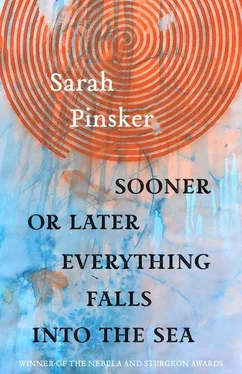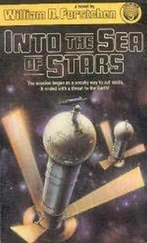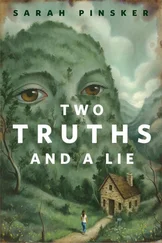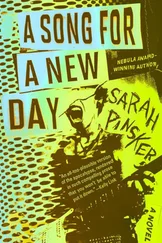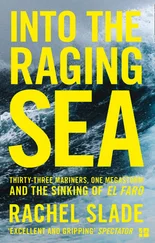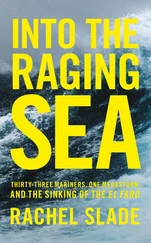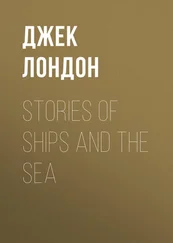Sarah Pinsker
Sooner or Later Everything Falls into the Sea
— stories —
To my parents, for feeding me stories.
— A Stretch of Highway Two Lanes Wide —
Andy tattooed his left forearm with Lori’s name on a drunken night in his seventeenth year. “Lori & Andy Forever and Ever” was the full text, all in capital letters, done by his best friend, Susan, with her homemade tattoo rig. Susan was proud as anything of that machine. She’d made it out of nine-volt batteries and some parts pulled from an old DVD player and a ballpoint pen. The tattoo was ugly and hurt like hell, and it turned out Lori didn’t appreciate it at all. She dumped him two weeks later, just before she headed off to university.
Four years later, Andy’s other arm was the one that got mangled in the combine. The entire arm, up to and including his shoulder and right collarbone and everything attached. His parents made the decision while he was still unconscious. He woke in a hospital room in Saskatoon with a robot arm and an implant in his head.
“Brain-Computer Interface,” his mother said, as if that explained everything. She used the same voice she had used when he was five to tell him where the cattle went when they were loaded onto trucks. She stood at the side of his hospital bed, her arms crossed and her fingers tapping her strong biceps as if she were impatient to get back to the farm. The lines in her forehead and the set of her jaw told Andy she was concerned, even if her words hid it.
“They put electrodes and a chip in your motor cortex,” she continued. “You’re bionic.”
“What does that mean?” he asked. He tried to move his right hand to touch his head, but the hand didn’t respond. He used his left and encountered bandages.
His father spoke from a chair by the window, flat-brimmed John Deere cap obscuring his eyes. “It means you’ve got a prototype arm and a whole lot of people interested in how it turns out. Could help a lot of folks.”
Andy looked down at where his arm had been. Bandages obscured the points where flesh met prosthetic; beyond the bandages, the shine of new metal and matte-black wire. The new arm looked like their big irrigation rig, all spines and ridges and hoses. It ended in a pincer, fused fingers and a thumb. He tried to remember the details of his right hand: the freckles on the back, the rope-burn scar around his knuckles, the calluses on the palm. What had they done with it? Was it in a garbage can somewhere, marked as medical waste? It must have been pretty chewed up or they would have tried to reattach it.
He looked at the other arm. An IV was stuck in the “Forever” of his tattoo. He thought something far away was hurting, but he didn’t feel much. Maybe the IV explained that. He tried again to lift his right arm. It still didn’t budge, but this time it did hurt, deep in his chest.
“Can’t prosthetics look like arms these days?” he asked.
His practical mother spoke again. “Those ones aren’t half as useful. You can replace this hand with a more realistic one later if you want, but to get full use of the arm they said to go with the brain interface. No nerves left to send the impulses to a hand otherwise, no matter how fancy.”
He understood. “How do I use it?”
“You don’t, not for a while. But they were able to attach it right away. Used to be they’d wait for the stump to heal before fitting you, but this they said they had to go ahead and put in.”
“You don’t have a stump, anyway.” His father chopped at his own shoulder as an indicator. “You’re lucky you still have a head.”
He wondered what the other options had been, if there had been any. It made sense that his parents would choose this. Theirs had always been the first farm in Saskatchewan for every new technology. His parents believed in automation. They liked working the land with machines, gridding it with spreadsheets and databases, tilling the fields from the comfort of the office.
He was the throwback. He liked the sun on his face. He kept a team of Shires for plowing and used their manure for fertilizer. He had his father’s old diesel combine for harvest time, his biggest concession to speed and efficiency. And now it had taken his arm. He didn’t know if that was an argument for his horses and tractors or his parents’ self-guided machines. The machines would take out your fence if you programmed the coordinates wrong, but unless your math was really off they probably wouldn’t make it into your office. On the other hand—now a pincer—it had been his own stupid fault he had reached into the stuck header.
Andy’s world shrank to the size of the hospital room. He stood by the window and read the weather and fought the urge to call his parents, who were taking care of his small farm next to theirs in his absence. Had they finished harvesting before the frost? Had they moved the chicken run closer to the house? He had to trust them.
The doctor weaned him off the pain medications quickly. “You’re a healthy guy,” she said. “Better to cope than get hooked on opiates.” Andy nodded, figuring he could handle it. He knew the aches of physical labor, of days when you worked until you were barely standing, and then a Shire shifted his weight and broke your foot, and you still had to get up and work again the next day.
Now his body communicated a whole new dialect of pain: aches wrapped in aches, throbbing in parts that didn’t exist anymore. He learned to articulate the difference between stinging and stabbing pains, between soreness and tenderness. When the worst of it had broken over him, an endless prairie storm, the doctor gave the go-ahead for him to start using his arm.
“You’re a fast learner, buddy,” his occupational therapist told him when he had mastered closing the hand around a toothbrush. Brad was a big Assiniboine guy, only a couple of years older than Andy and relentlessly enthusiastic. “Tomorrow you can try dressing yourself.”
“Fast is relative.” Andy put the toothbrush down, then tried to pick it up again. He knocked it off the table.
Brad smiled but didn’t make a move for the fallen toothbrush. “It’s a process, eh? Your muscles have new roles to learn. Besides, once you get through these things, the real fun begins with that rig.”
The real fun would be interesting, if he ever got there. The special features. He would have to learn to interpret the signal from the camera on the wrist, feeding straight to his head. There were flashlights and body telemetry readings to turn off and on. He looked forward to the real tests for those features: seeing into the dark corners of an engine, turning a breach calf. Those were lessons worth sticking around for. Andy bent down and concentrated on closing his hand on the toothbrush handle.
Just before he was due to go home, an infection sank its teeth in under his armpit. The doctor gave him antibiotics and drained the fluid. That night, awash in fever, he dreamed his arm was a highway. The feeling stuck with him when he woke.
Andy had never wanted much. He had wanted Lori to love him, forever and ever, but she didn’t and that was that. As a child, he’d asked for the calf with the blue eyes, Maisie, and he kept her until she was big enough to be sold, and that was that. He’d never considered doing anything except working his own land next to his parents’ and taking over theirs when they retired. There was no point in wanting much else.
Now he wanted to be a road, or his right arm did. It wanted with a fierceness that left him baffled, a wordless yearning that came from inside him and outside him at once. No, more than that. It didn’t just want to be a road. It knew it was one. Specifically, a stretch of asphalt two lanes wide, ninety-seven kilometers long, in eastern Colorado. A stretch that could see all the way to the mountains, but was content not to reach them. Cattleguards on either side, barbed wire, grassland.
Читать дальше
